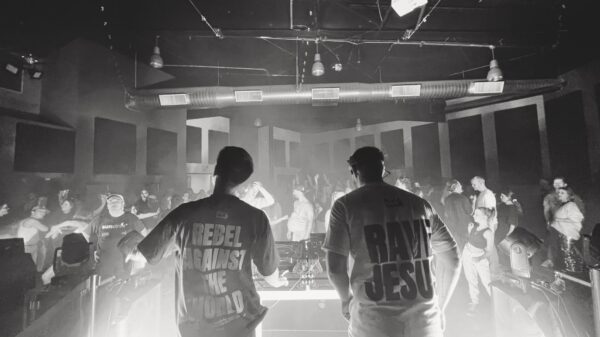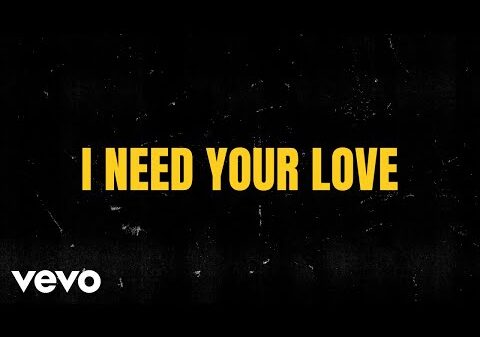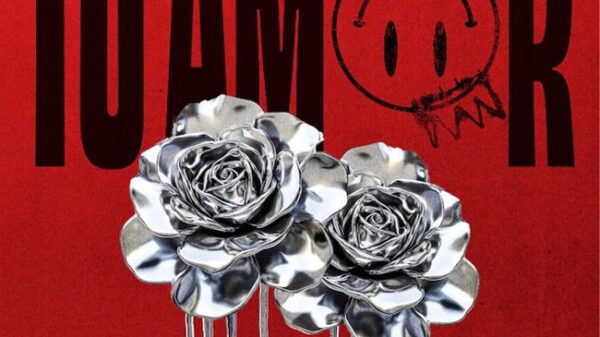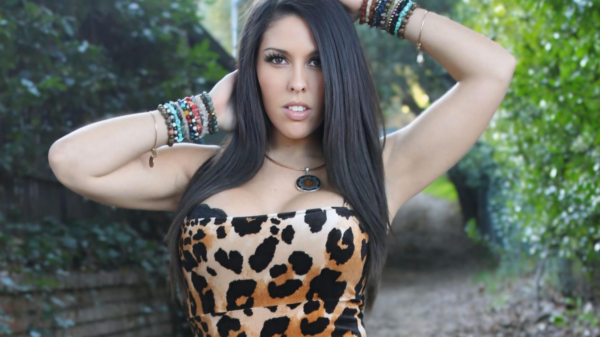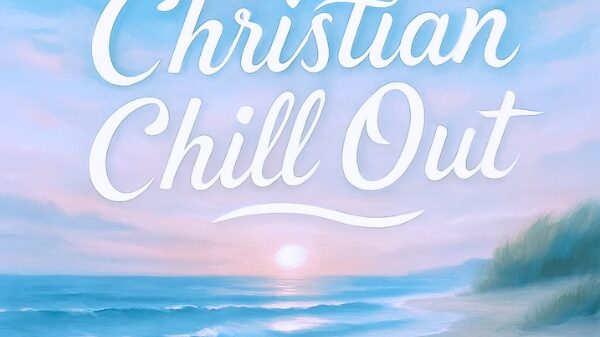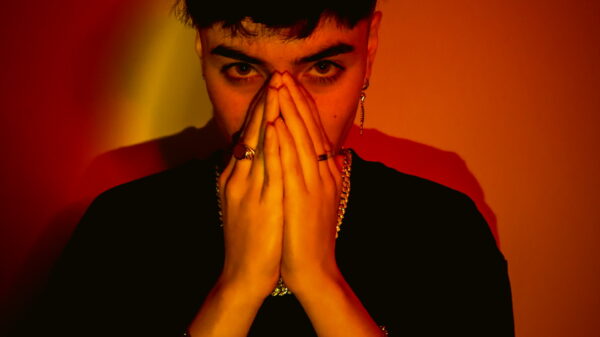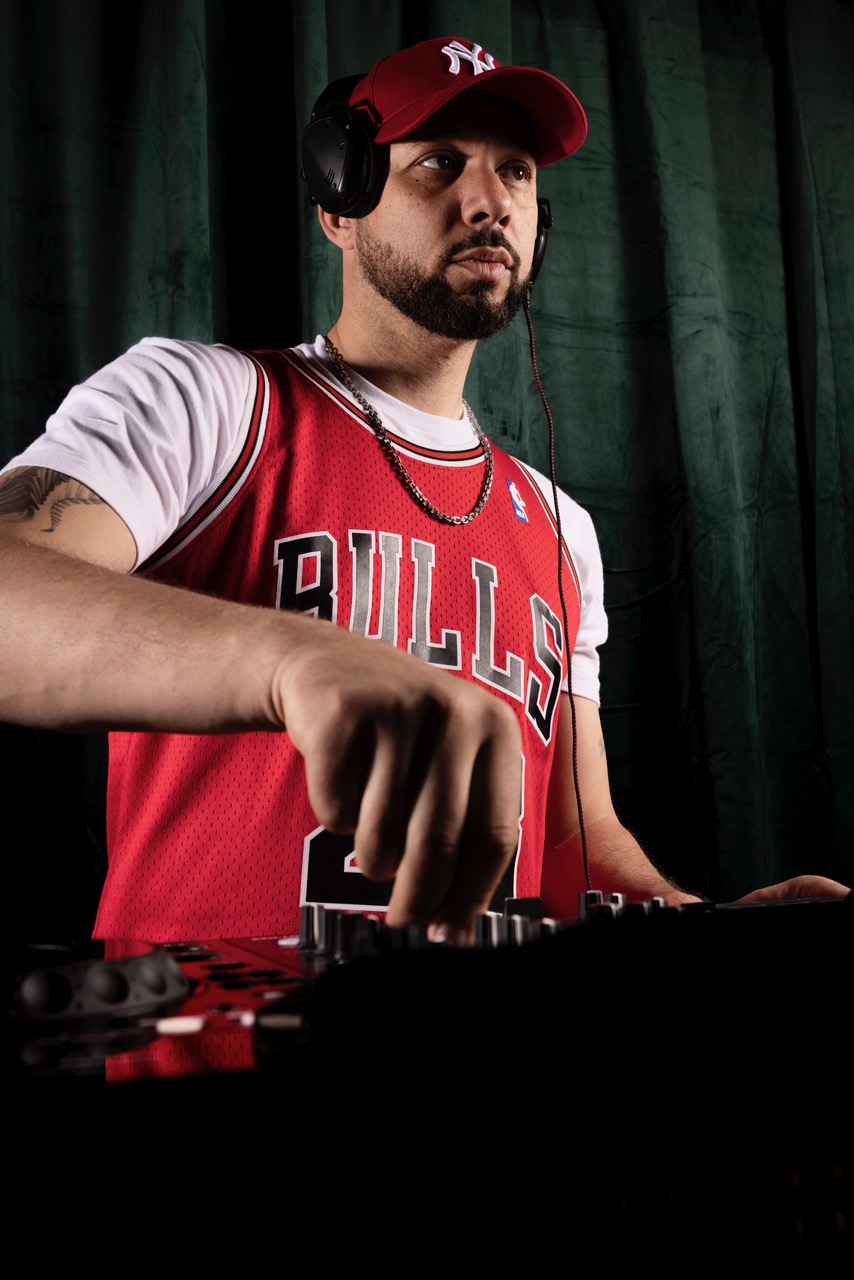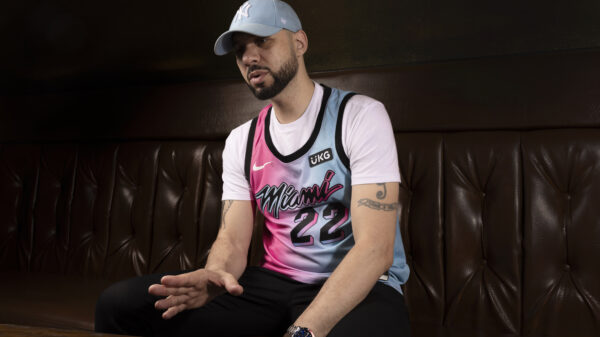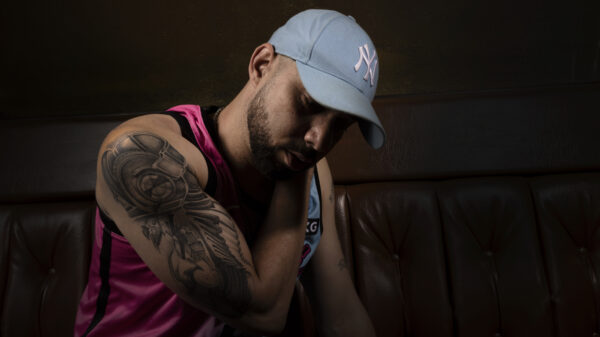Can you share one of your most memorable moments from performing live?
I’ve had a few DJ bucket list items over the years, some of which have still not been ticked off. One of them that has been ticked off, thankfully, was during what was a truly beautiful moment for me and all those present. My bucket list item was to DJ on a beach in another country (England is not known for its beaches). I wanted to feel the sand between my toes on the beachfront as I DJ’d with the sun beaming down or the stars shining brightly overhead. A few years back, I was asked to DJ at my good friend’s wedding on a beautiful private sandy beach from sunset till sunrise, and it was everything I had hoped it would be. I’ve played so many different types of parties over the years, but that mix of location with that group of people, that weather, and amazing wedding vibes proved to be the perfect blend of ingredients for my most memorable live set.
You’re known for blending influences from New Jack Swing, RnB, and Hip Hop into your musical approach. What drew you to these classic sounds, and how do you keep them fresh for today’s audience?
I was drawn to these musical sounds primarily because they dominated the streets of East London where I grew up. In school, college, family parties, it was everywhere. My mother was a massive Lionel Richie fan, so my early years were dominated by his music and that of his band, The Commodores. As she was from St. Lucia in the Caribbean, she also loved Steel Band music, so I have a soft spot for that genre too. Another hugely influential sound growing up was the film Breakdance (or Breakin’). The soundtrack to that film was so, so good! I’ve probably seen that and the sequel on VHS over 100 times! I just found those films so cool, edgy, and fun at a time when there were not many dance/music films like that out.
As for keeping these sounds fresh for today’s audience, I tend not to play these older genres too often unless I’m playing for an audience that requests it. My music appreciation is largely influenced by these genres, and I tend to lean towards a lot of music that shares the same influences, and that could come in the shape of many different genres. House music can be seen to embody the best of all genres outside of it and reimagine it for the betterment of dancefloors everywhere. It’s through House music that I tend to keep those older influences fresh for today’s audience.
With such a broad range of genres in your sets, how do you keep your performances engaging and cohesive for diverse crowds?
The key ability to keep things cohesive regardless of how diverse your crowd is, is being able to read your crowd. If you only play one genre or the crowd have only come to hear one genre as it’s a party dedicated to that one genre, then that makes things easier in terms of knowing what your crowd wants to hear. When playing open format, you must consider the fact everyone has not come to hear the same thing. So, you can play a little of everything, or more of some and less of others, or ignore some of your crowd and stick to just one or two genres but aim to play the best you can in those genres. Remembering that the crowd have paid money to have a great time and be entertained by you should be at the forefront of your mind. It’s easy to just play for yourself, but those people who paid are unlikely to return, and you are unlikely to get rebooked unless they feel like they are at the centre of your track choices. Not to say that they should choose the tracks or annoy you with requests. However, you should know the go-to tracks in each genre which you can draw upon should you feel like you are losing a crowd, and also, you should consider the journey you want to take them on, be it from unknown to sing-along tracks, the tempo journey (staying the same bpm, gradually increasing or decreasing, or planned spikes upwards or downwards). I can play many different genres; however, I tend not to mix up the genres too much when I play unless I am doing a long set (say 5-6 hours) or whoever has booked me has asked for a genre mix.
Having spent years behind the decks, what’s the biggest lesson you’ve learned about reading and interacting with a crowd?
As mentioned above, I would say that you should be equally as proactive as you are reactive. If you’re playing intimate gigs, look for the leaders on the dancefloor and maintain eye contact and make sure they are engaged. I tend to find that if you influence them, they in turn influence those around them. If you are DJ’ing at the larger parties or festivals where you can’t see the whole crowd, then you must be able to feel the energy of the room. Being able to play different genres and spending many years behind the decks means that I am open to play a variety of gigs for different audiences and get to absorb unique types of energy with each one. I feed off and soak up energy like a sponge. Being immersed in good vibes and energy is addictive, and I find that different crowds have different types of energy, each with their own merits (and disadvantages if it’s not going well). Limit yourself to one genre and you will most likely fail to experience this from a DJ perspective (which is very different to a raver’s perspective). Of course, the icing on the cake to that energy and vibe you’re absorbing is that you, the DJ, are responsible for creating it.
What’s been the most challenging aspect of your DJing career so far, and how have you learnt to navigate obstacles?
I realised many years ago that although I grew up loving RnB and Hip-Hop, my love for the new music coming out in those genres didn’t excite me the way it used to. I felt I outgrew the genres and kept going back to the older tracks rather than looking forward to any new music. That wasn’t the same with House music. I had always listened to House music and would play it at parties, but I never considered myself a ‘House DJ’ as I didn’t specialise in the genre. However, I made a choice around 10 years ago to start buying a lot more House music as I felt I could grow old with House music and still be excited about new music and its subgenres in a way that I could no longer do with my early musical loves.
What’s one piece of equipment or software that you consider essential to your setup, and why?
Great question. I’d have to say my iTunes library is probably the beating heart of my entire setup. Ever since I transitioned from vinyl, I have organised all my MP3s using iTunes. Whether I owned a Windows PC or a Mac, iTunes was my software of choice, and as a result, it is filled with numerous playlists I have built up over the years, which I rely on like I would do record boxes back in the day. These playlists are of course transferable into both Serato and Rekordbox, and due to me preferring to play RnB and Hip-Hop on Serato and Electronic Music on Rekordbox, having an underlying source of playlists that works on both platforms is essential for me to have fluidity between the two software types.
Finally, what advice would you give to aspiring DJs who are looking to carve out their own niche in the Electronic Music scene?
Make sure you look backwards when searching for new music for your collection, equally if not more than you are looking forward to what’s hot now. Electronic music, more so than most other genres, is flooded with people that really know their music and not just the sing-along tracks. The partygoers like to be taken on a journey, and they appreciate those tracks that came before just as much as they do what’s out now and what’s coming ahead. That backwards journey of discovery for a DJ can be just as rewarding as the forward-looking journey, but I notice a lot of new DJs don’t see this, or at most they limit it to the last few years. Remember all new music has taken influence from somewhere and it’s likely that those influences could rock your crowd just as well as the new music you are playing now, and it comes with the bonus that you will get the extra kudos from your peers for ‘knowing your sh@t!’.
We thank Wilza for his time and for sharing such a deep look into his career and experience as a DJ so far; with a journey that spans across multiple genres and dancefloors, his approach to DJing is rooted in a deep understanding of how to engage crowds while staying true to his influences; and whether he’s mixing at intimate gatherings or large events, he consistently brings energy and thoughtful selection to the decks.
As he continues to explore new musical directions, Wilza’s focus remains on connecting with his audience and delivering memorable experiences.
Wilza Online

